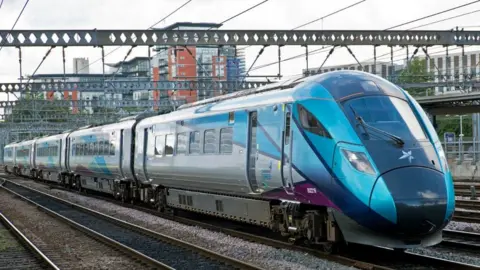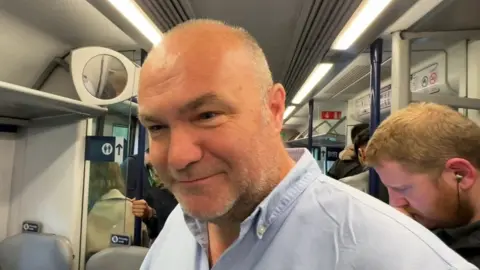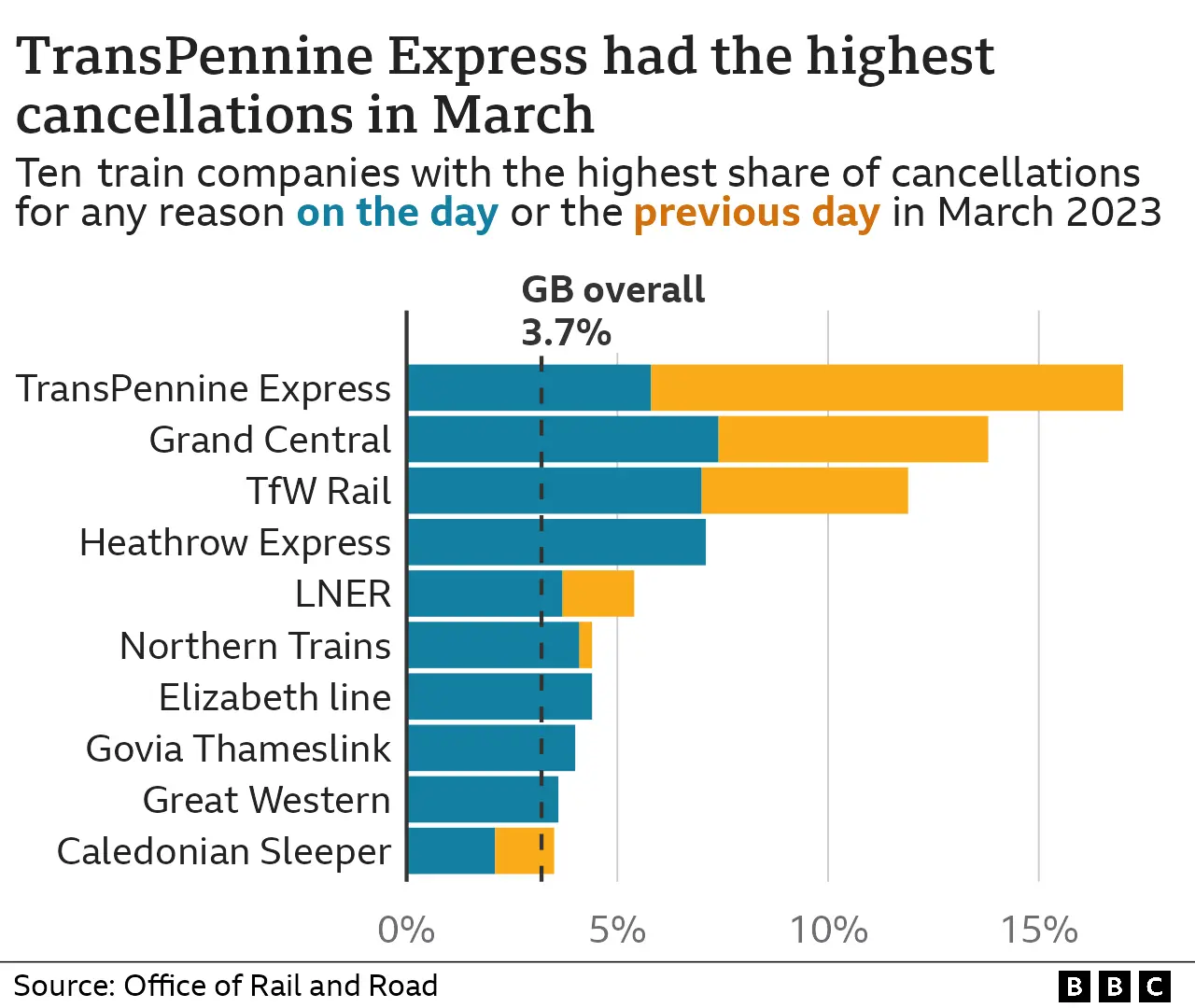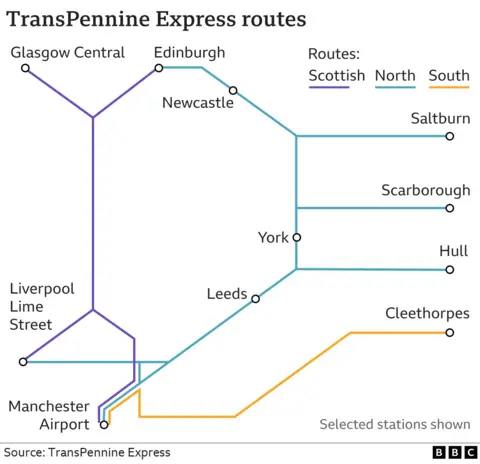TransPennine Express loses contract over poor service
 Transpennine Express
Transpennine ExpressTransPennine Express will be nationalised after customer complaints of poor service and cancelled trains.
The government will now run the service which covers Manchester, Liverpool and Leeds in the north of England and runs to Edinburgh and Glasgow in Scotland.
Passengers will see no change to the service but the overall aim is to improve its performance.
In January and February about a quarter of its services were cancelled, which was the highest rate in the UK.
That improved to around one in six in March, but it was still the worst-performing train operator in terms of cancellations.
The Department for Transport said that TransPennine's contract would not be renewed on 28 May.
It will now be run by the Operator of Last Resort (OLR), which means a business will step in on behalf of the government to take over the management of the service.
Transport Secretary Mark Harper said taking TransPennine under state control was "not a silver bullet and will not instantaneously fix a number of challenges being faced".
TransPennine, which is run by the company FirstGroup, has stood out for the number of trains it has cancelled the night before they are due to run, which it has blamed on staff shortages.
The rail operator's services run across the north of England, and include destinations in Yorkshire, the North East and Lincolnshire.

Passengers on the packed Manchester to York line on Thursday morning weren't surprised by the news.
"I've been getting this train for 20 years and it's been a bit fraught," said Chris Flanagan.
A few years ago there was some investment, but since the Covid pandemic "it's been absolutely horrendous", he said.
"Most days you can't actually get into the office. [It's been] pretty grim," he added.
Fellow commuter Sarah Hunt agreed, saying she checks what trains are running both the night before and in the morning before setting off.
But the the service being nationalised "could be a good thing", she said.
"I feel like Northern did benefit a lot from when it was taken over by the Operator of Last Resort, so I do think that possibly, it could be quite useful."
Northern, London and North Eastern Railway (LNER) and Southeastern Trains are all currently run by the OLR.
Scotrail, Transport for Wales and Northern Ireland Railways are also nationalised.
Based on the latest figures, when the OLR takes over TransPennine's contract, more than one in five train journeys in Britain could be run by nationalised companies.
Nigel Harris, managing editor of Rail magazine, said nationalising TransPennine was little more than "political window dressing", as in effect the government has been in control of the rail network in England since coronavirus lockdowns led to "the collapse of all the franchises".
Emergency contracts were signed during the pandemic, which were replaced by national rail contracts with most train companies in England, whereby the company is paid a fixed fee to operate services and the taxpayer shoulders the financial risk.
"There will be no immediate difference in how the services are operated and the same old problems will persist - but now it will be clearly the government's fault," Mr Harris said.

There has been ongoing disruption to TransPennine services since early 2022, but the company has said a recovery plan was bringing the numbers down.
It has previously blamed high staff sickness rates, a backlog of driver training and the lack of an overtime working agreement with the drivers' union Aslef.
The transport secretary also blamed strikes by Aslef for hampering a full service being offered on TransPennine routes.
However, Aslef said that was "misleading" and that the blame should lie with the company's "inept management".
FirstGroup said it was disappointed by the government's decision not to renew the contract it has run in various guises since 2004.
"Our team have worked extremely hard to improve services, including by recruiting and training more drivers than ever before," said Graham Sutherland, FirstGroup's chief executive.

However, Louise Haigh, Labour's shadow transport secretary, said: "This endless cycle of shambolic private operators failing passengers shows the Conservatives' rail system is fundamentally broken."
A Labour government would nationalise railways as contracts expire, she added.
Andy Burnham, Labour Mayor of Greater Manchester, said privatisation has "seen fares shoot up, and the standard of services go down, and the companies in the end are not accountable to the paying public".
West Yorkshire's Labour Mayor Tracy Brabin said there had been "a catalogue of failure and delays and cancellations" on TransPennine and that it was "absolutely right that this is the end of the line" for the operator.
